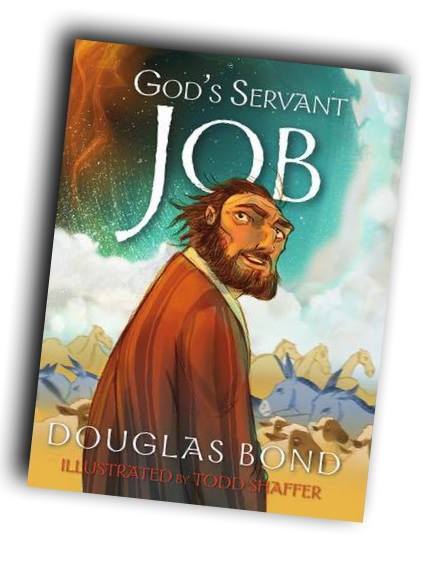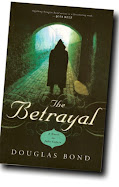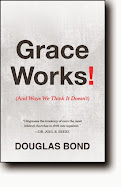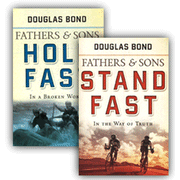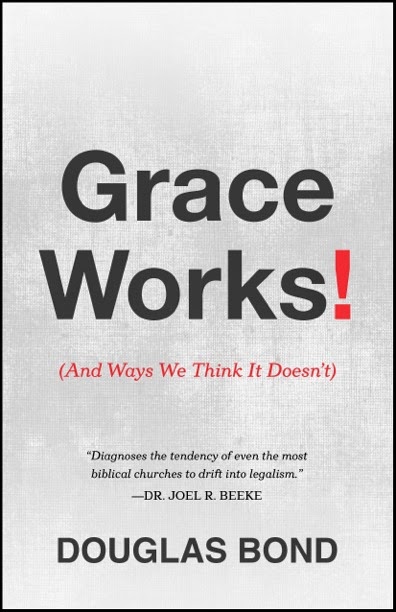I was honored to be the lecturer for the annual Dennis Leaman Lectures at Olympia (Mt of the pagan gods) Bible Presbyterian Church, June 16-17, 2012. Tyto Lyro is a good friend and godly shepherd of his flock, and it was, indeed, a rich blessing to fellowship with the saints for these two days. The audio links are below and on my website www.bondbooks.net
The Three Pre-Reformers:
JOHN WYCLIFFE
JOHN HUSS
GIROLAMO SAVONOROLA
Sunday Morning Sermon:
THE CITY OF GOD AND TRUE DIVERSITY; Psalm 87
Friday, June 29, 2012
Ligonier Seattle Conference--Above My Pay Grade
 |
| A former student took this picture |
But when Chris Larsen led me out to the main auditorium, I saw a sea of faces (some have estimated that there were 1,500 folks who had shortened their dinner hour to come to my optional session. I didn't count). Steven Lawson had said in his opening message that he feels sort of like the band that opens for R C. I began by telling the folks that if Dr Lawson was the band that opened for R C, I felt like a street musician busking for loose change in the back alley behind the church.
It was a warm and receptive congregation, many of them readers, and I had asked to have a stack of books (THE MIGHTY WEAKNESS OF JOHN KNOX, the book title, published by Ligonier's Reformation Trust publishing house, and my lecture topic) on hand for Giles (9) and Gillian (7) to give out to folks who could answer some of my questions. It was fun, and my kids loved participating. A highlight was when I finished speaking and was stepping off the chancel, R C met me, shook my hand, and in his gravelly voice said, "I was listening in the back. Good job."
Saturday morning I was scheduled to sign books at a table with R C, and Giles and Gillian and my wife Cheryl got to meet him and his delightful wife Vesta (Cheryl hit it off with his wife).

Watch the video of my optional session (does this mean that everybody had to go to the other sessions--not optional--and they came to mine because they wanted to? ha!). Or you can visit the link to Ligonier's site.
Tuesday, June 5, 2012
Cleaning my glasses & parting poetry from CHS Senior Class, 2012
I entered my classroom Monday morning, and abruptly halted in my tracks. Sometimes after riding my bike to school, especially when it's been drizzling (as it had been the Monday morning in question), my glasses get sort of fogged up. There was a bit of a film on them yesterday morning. But once a gave them a quick wipe down, everything was back to normal. Admittedly, I'm not the most meticulous housekeeper, but what's the big deal? Everything looked fine to me.
Now for the poem. One of my seniors left this parting poem on his final exam (with a few minor helps):
Now for the poem. One of my seniors left this parting poem on his final exam (with a few minor helps):
We’ve
studied Screwtape Letters and Macbeth,
And learned
how much temptation leads to death.
We learned
that demons tempt men to despair,
And that
King James was Banquo’s heir.
While Lewis’
Screwtape Letters tops them all,
Macbeth displays what happens when we fall.
While Bill
and Jack and all the rest we’re fond,
We learned them all from Mr. Bond!
Monday, June 4, 2012
"Not like beet pancakes" WSC Reviews my book THE BETRAYAL
In the past few years there have been a number of cookbooks which give
recipes that sneak healthy food into tasty dishes. I have firsthand
experience with some of these recipes and can testify that some are hits
(spinach brownies) and some are misses (beet pancakes—youch!). As a
husband and father I am always trying to make palatable those things
that I feel are important and significant for my family to know. As most
of us who love theology and history have surely realized, our passions
and interests are not always the same as the passions and interests of
those we love. So we try to be creative and make the goods (theology,
etc…) as interesting and palatable as possible for those nearest and
dearest to us.
The Betrayal (P&R) is a biographical novel about the great Reformer John Calvin written by Douglas Bond. This book is definitely not like the beet pancakes... read more
The Betrayal (P&R) is a biographical novel about the great Reformer John Calvin written by Douglas Bond. This book is definitely not like the beet pancakes... read more
'Blots square off for an evening of literary stimulation
INKBLOTS -- May 31, 2012
South African Springbok red, four
diehard 'Blots. David shared with us about final editing frustrations, thinking
he'd caught everything, then his fifteen-year-old daughter picked up on thirty
plus typos. John opened with a Shakespeare polka, that didn't make much sense
to me tonight (got my fifth jury duty summons in two years this evening, smack
in the middle of my writing summer, too cruel). Then John read a piece from his
blog (Writer's Block) on using descriptive language. Good exercise to warm up
the imagination for using the senses when you're preparing to write, and
written with a feeling of ease.
John reads Road to Heaven, by Alisa Wise (former student of mine). Make that
five men, Andy S strolling in the door after we had begun. Always glad to see
Andy (UW English Lit major in college, perceptive critiques come from his
informed imagination). Instead of telling us that he was reminiscing over old
feats in battle, let us hear him do it in some dialogue. I felt like the hook
was missing, heavy on the narrative, but I couldn't feel and see the characters
as clearly as I'd like to. I didn't get the clear sense of who I was supposed
to care about, from whose perspective I was supposed to see the world. Give me
somebody I get connected to, whose problem I want to be fixed, someone who
demands the reader's attention. Great potential, and amazing that Alisa first
wrote this half her life ago, almost.
David is working on a sequel to his
futuristic thriller, in the final stages of the editing process with Winepress.
Somebody is going to get shot and somebody is going to get kidnapped. Militia
coming in hot pursuit. Splintering nations.
We talked about outlining the whole
story, mapping where you think you are going or just let the story unfold. I'm
of the opinion that we need to do as much careful mapping and planning at the
early stages, but with no rigid obligation to stick with the original plan as
the story unfolds. Nothing is more delightful than when inspiration hits and
you feel like you are along for the ride, and what a ride it can be. But this
is hardly the stock and store of good writing. No substitute for the hard work
of planning and plotting, but be prepared to deviate when the characters and
real life world take over, if you have created an authentic world, this can
happen. Though it is not absolutely necessary to writing a good yarn.
When is description gratuitous and
unnecessary? Flowery description, sentimentalized goo. Mahogany paneling only
if needed for atmosphere, or connection to a character whose father died
mysteriously in a Honduran rain forest, and he can't abide mahogany. It enrages
him, the smell, the texture, the blood-red streaks in the grain. Mahogany madness ensues. You get the
idea. Keep it connected; make sure every word has work to do.
D Mac is reading from his World War I
tale, November, 1914. On the Elbe River, Rudy is a cabin boy, taking over from
one who lasted little more than a few days. I thought your line up of what he
liked and what he didn't like about Germany was effective. Chapter three of
twenty five chapters, 90,000 words. So just beginning, but off to an intriguing
start. Seasickness could be felt more by the reader, the rising in the innards,
the relentless swallowing, the lurching in the stomach, the mounting dread.
I read the last half of chapter one
of Grace that Works, a manuscript
that explores the reasons why the church relentlessly departs from the gospel.
We discussed why Christians are constantly fighting with each other. The point
of the book is that Satan works to corrupt the gospel, and he has a jolly time
getting the visible church in wrestling matches--or is it back-alley
brawls--while he does it.
Labels:
advice on good writing,
inkblots,
mens writing group
Subscribe to:
Posts (Atom)







